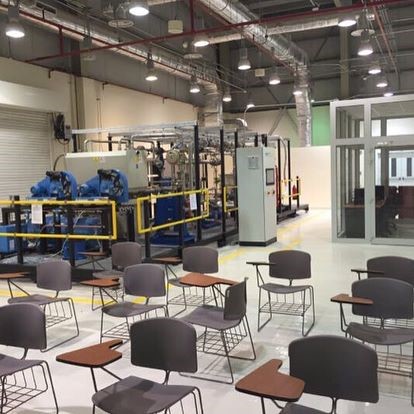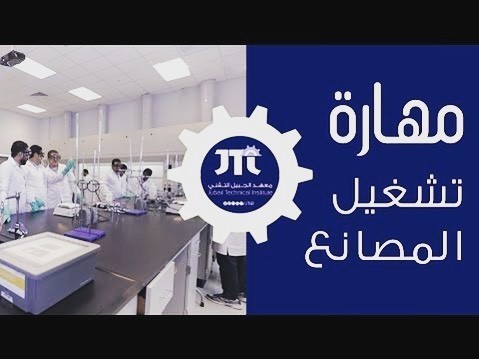Introduction.
Process operation program prepares graduates to work as process operators in processing industries such as petrochemical, fertilizer, natural gas processing, metallurgical, petroleum refining, utilities, manufacturing and production, and food and beverage production. The program involves the study of chemical engineering technology courses such as unit operations, process control, industry safety, process simulation, and quality control. There is a considerable emphasis on the hands-on-job training as a significant part of this program.
Process operators should have good hand-eye coordination, vision, hearing and manual dexterity, strong communication skills, and are able to work well with others in a team environment.
Program Goals.
Apply the science and skills required to achieve optimal performance in the operation and management of engineering operations with particular emphasis on the oil, gas and petrochemical industries.
- Application of quality principles and control of industrial processes.
- Exploring technical errors and failures in industrial equipment and equipment.
- Maintain a professional and environmentally friendly performance.
- Understand the application of the professional and ethical responsibilities of operator in chemical plant.
- Ability to work independently or part of a team.
- Acquire effective communication skills that maintain a positive working environment in the chemical plant.
Process Operation Skill.
The chemical skills department is based on highly advanced workshops and applied technology laboratories. Our laboratories are equipped with many equipment in specialized systems and advanced technology, a vital component of our operation process. Laboratories in the Chemical Skills Department include:
- Continuous distillation columns.
- Continuous signals.
- Different composition of heat exchangers.
- Working systems of pumps and valves in a number of devices of different types.
- Controls and valves.
- Experimental plant. (Pilot Plant).
- Quality measuring devices.
- Re-distillation and purification of water.
- Temperature control devices, pressure, level of liquid materials, and flow of materials.
- Simulation systems for operation of process operation units.
Career Opportunities
A graduate of the program can be able to obtain employment as plant operators in areas such as oil and gas extraction and refining, oil production facilities, petrochemical industries, primary metal processing, thermal power plants, water treatment and waste treatment facilities, laboratory technicians and quality technicians at Industrial quality laboratories.

